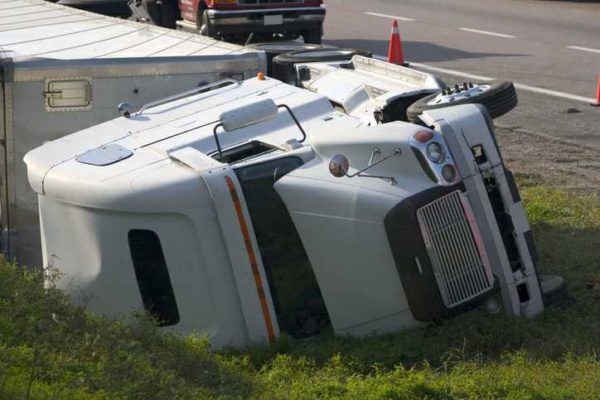Sleep Apnea Raises Risk Of Drowsy Driving Crashes
April 17, 2020

Sleep apnea is a devastating sleep disorder defined by interrupted respiration and abnormally loud snoring. Those who suffer from sleep apnea might experience headaches and excessive drowsiness during the daytime hours. Obesity, use of cigarettes, having a neck size greater than 17 inches, and being over the age of 40 are the most common risk factors linked to sleep apnea.
According to the Mayo Clinic, there are three primary categories of sleep apnea:
- Obstructive sleep apnea (OSA): An over-relaxed palate of the throat and mouth collapses, obstructing the airways into the lungs. For some people with OSA the airways are completely blocked.
- Centralized sleep apnea (CSA): This type is not a mechanical obstruction, unlike OSA. The brain does not signal breathing to the respiratory system. A person with CSA may stop breathing and wake up at times.
- Complex sleep apnea syndrome: This is a mix of OSA and CSA.
How does sleep apnea contribute to drowsy driving crashes?
Although this condition affects only four per cent of the population, as much as 35 per cent of truck drivers have sleep apnea. Truck drivers with sleep apnea often receive only small amounts of sleep per night. In fact, they are often deprived of two important sleep cycles. These include:
- Deep sleep (which is critical to physical rest)
- Dream sleep (critical to mental, cognitive, and emotional rest)
Truck drivers with sleep apnea are 250 percent more likely to be involved in a crash than those with normal sleep patterns. They frequently experience poor memory, impaired concentration, irritability, and sometimes, medical events while driving (heart attacks or strokes).
Sleep apnea affects the daytime alertness and driving performance, according to the Federal Motor Carrier Safety Administration (FMCSA). Although drivers may not fall asleep behind the wheel, they may experience increase inattentiveness, reduced reaction time and impaired judgment.
Is there enough federal oversight on truckers with sleep apnea?
Currently, truck drivers are not required to be tested for sleep apnea. Truck drivers are required by the Transportation Department to test for body mass index (BMI). Sleep apnea testing is only required with a BMI reading of 30 or more.
Until the condition is addressed, a trucking company may not allow a truck driver with moderate or severe sleep apnea to drive if deemed medically unqualified by the FMCSA. A trucker’s driving privilege may be restored once the condition is medically addressed.
Drowsy driving is a major cause of Pennsylvania truck crashes. That is why the truck accident attorneys at Villari, Giannone and Matteo are dedicated to helping injured motorists seek justice. Dealing with trucking companies and their insurers can be complicated. Our attorneys have the legal knowledge and experience to advocate for you and get results.
We serve clients in Conshohocken and Philadelphia, as well as Marlton, New Jersey. Contact us online to schedule your free case consultation.
![Quote]() "Want to thank all of you once again not only for your professional services but your friendship and feeling like family through all of these past four years as we fought to rebuild Stefanie's life. I could not have made a better choice for helping us through this ordeal."
"Want to thank all of you once again not only for your professional services but your friendship and feeling like family through all of these past four years as we fought to rebuild Stefanie's life. I could not have made a better choice for helping us through this ordeal."Karl
- "They are all very helpful, caring and they do everything to try to make sure you as a client are OK and get you what you deserve. I would recommend them to anyone. They are a great law firm."
Tiffany
![Quote]() "I will happily be recommending your firm to anyone who may need your help in the future because of Jen, Eric and Brian."
"I will happily be recommending your firm to anyone who may need your help in the future because of Jen, Eric and Brian."Michelle
Hear What Our Clients Have to Say






